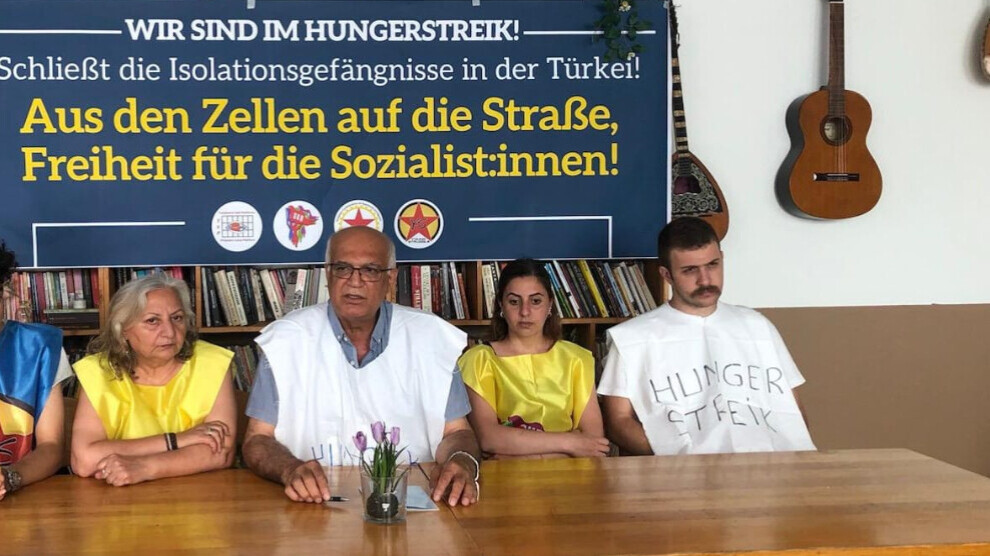Hunger strike in Basel demands closure of isolation-type prison cells
A three-day hunger strike in Basel called for international solidarity against isolation in Turkish and Hungarian prisons and demanded freedom for SGDF prisoners.
A three-day hunger strike in Basel called for international solidarity against isolation in Turkish and Hungarian prisons and demanded freedom for SGDF prisoners.

Hunger strikes held in various cities across Europe in solidarity with prisoners resisting the implementation of "well-type" isolation cells in prisons in Turkey and Kurdistan took place this time in the city of Basel. The three-day hunger strike, which began on 20 June, was organized under the leadership of the Basel Education, Culture and Arts Center (BEKSAM).
Pit-type cells are instruments of political destruction
On the first day of the protest, Hüseyin Torun, co-spokesperson of the Swiss Federation of Migrant Workers (IGIF), emphasized that pit-type isolation cells are not only a form of physical confinement but also a system of political isolation. Torun stated, “This system aims to break the will of revolutionary prisoners, sever their organizational ties, and erase the memory of resistance.”
Members of the Socialist Youth Associations Federation (SGDF) were arrested in Turkey on 2 June, and four of them remain on hunger strike. Maja, a detainee in Hungary, has been held in a solitary male cell since 5 June and has been subjected to ill-treatment.
Demands were announced
Participants in the Basel protest issued a call for a united struggle against isolation policies implemented both in Turkey and across Europe. Throughout the hunger strike, various informational events and panel discussions are planned. The protesters outlined their demands in five key points:
Not a death without a grave, but resistance
In the final statement of the protest, pit-type isolation cells were described as a form of “death without a grave,” and a call was issued for the European public to break its silence. IGIF spokesperson Torun said, “What is needed in the face of these practices is not only resistance from inside the prisons, but also an organized stance outside. Exposing and dismantling the pit-type isolation system is an international responsibility.”